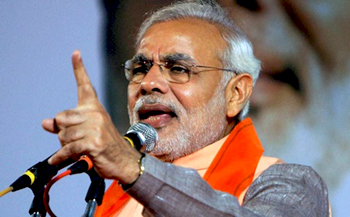New Delhi, May 19: The number of coronavirus cases crossed the one lakh mark in the country on Tuesday, while the death toll due to the infection touched 3,163, according to the Union Health Ministry.
A total of 134 deaths and 4,970 COVID-19 cases were reported in the country in the past 24 hours since 8 pm on Monday, it said.
The total number of coronavirus cases has risen to 1,01,139, the ministry said.
The number of active COVID-19 cases stood at 58,802 while 39,173 people have recovered and one patient has migrated, it said.
"Thus, around 38.73 per cent patients have recovered so far," a senior health ministry official said.
The total confirmed cases include foreigners.
Of the 134 deaths reported since Monday morning, 51 were in Maharashtra, 35 in Gujarat, 14 in Uttar Pradesh, eight in Delhi, seven in Rajasthan, six in West Bengal, four in Madhya Pradesh, three in Tamil Nadu, two each in Punjab and Jammu and Kashmir, and one each in Bihar and Telangana.
Of the 3,163 fatalities, Maharashtra tops tally with 1,249 deaths. Gujarat comes second with 694 deaths, followed by Madhya Pradesh at 252, West Bengal at 244, Delhi at 168, Rajasthan at 138, Uttar Pradesh at 118, Tamil Nadu at 81 and Andhra Pradesh at 50.
The death toll reached 37 each in Karnataka and Punjab and 35 in Telangana.
Jammu and Kashmir has reported 15 fatalities due to the disease, Haryana has 14 deaths while Bihar has registered nine and Kerala and Odisha each have reported four deaths.
Jharkhand, Chandigarh and Himachal Pradesh each have recorded three COVID-19 fatalities, while Assam has reported two deaths.
Meghalaya, Uttarakhand and Puducherry have reported one fatality each, according to the data provided by the ministry.
According to the ministry's website, more than 70 per cent of the deaths are due to comorbidities, the existence of multiple disorders in the same person.
According to the health ministry's data updated in the morning, the highest number of confirmed cases in the country are from Maharashtra at 35,058, followed by Tamil Nadu at 11,760, Gujarat at 11,745, Delhi at 10,054, Rajasthan at 5,507, Madhya Pradesh at 5,236 and Uttar Pradesh at 4,605.
The number of COVID-19 cases has gone up to 2,825 in West Bengal, 2,474 in Andhra Pradesh and 1,980 in Punjab.
It has risen to 1,597 in Telangana, 1,391 in Bihar, 1,289 in Jammu and Kashmir, 1,246 in Karnataka and 928 in Haryana.
Odisha has reported 876 coronavirus infection cases so far, while Kerala has 630 cases. A total of 223 people have been infected with the virus in Jharkhand and 196 in Chandigarh.
Tripura has reported 167 cases, Assam has 107, Uttarakhand and Chhattisgarh have 93 cases each, Himachal Pradesh has 90 and Ladakh has registered 43 cases so far.
Goa has reported 38 COVID-19 cases, while the Andaman and Nicobar Islands has registered 33 infections.
Puducherry has registered 18 cases, Meghalaya has 13 and Manipur has seven cases. Mizoram, Arunachal Pradesh and Dadar and Nagar Haveli have reported a case each till how.
"814 cases are being reassigned to states," the ministry said on its website, adding "our figures are being reconciled with the ICMR".
State-wise distribution is subject to further verification and reconciliation, it said.






Comments
What are the benefits of taking hashish?
Look into my website; seattle marijuana stores locations (1000islandsregion.com: http://1000islandsregion.com/__media__/js/netsoltrademark.php?d=recreat…)
You specified, \Material products offer us a short-term happiness sugar high\"We must remember that if one continues to take pleasure in the brief sugar highs,
one will end up with DiaBETes.If you re-arrange the letters
a little you wind up in financial obligation (time
debt, monetary debt and relationship financial obligation).
LikeLike
My homepage law group: http://www.google.com"
Hi my friend! I wish to say that this post is amazing, great written and come with approximately all significant
infos. I would like to see extra posts like this .
Feel free to visit my web blog; century 21 real estate: http://www.google.com
Add new comment